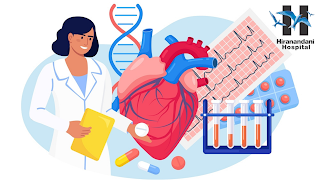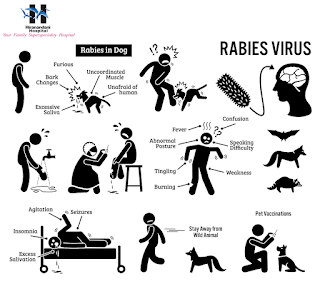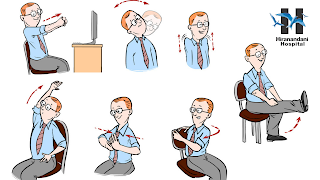Hiranandani Hospital Powai News: It is critical to act quickly, for a Heart Stroke Patient
A Heart stroke is a condition in which brain cells die as a result of a blockage in the blood supply or a blood vessel rupture. As a result, the function of a bodily part controlled by that area of the brain is lost. The majority of stroke victims are elderly people with uncontrolled diabetes or blood pressure. Stroke is also becoming more common among the young population.
According to consultant neurosurgeon Dr. Sachin Ashok Giri, L.H Hiranandani Hospital Powai this should be considered as a caution because India has the world's largest youthful productive population.
When your blood flows to the part of your brain where it is blocked, it can lead to stroke. Tissues of the brain are made up of oxygen and nutrients. Therefore, in this condition brain cells can die within minutes.
A stroke needs immediate attention. If you take intervention early then brain injuries and other consequences can be avoided.
The good news is that stroke deaths have decreased dramatically in recent years. There are several effective treatments that can also help to avoid stroke impairment.
Symptoms
If you suspect someone is experiencing a stroke, pay close attention to when the symptoms start showing. If administered immediately after a stroke begins, some therapy options are most helpful.
The following are signs and symptoms of a stroke:
- Getting trouble in communicating:
It's difficult to communicate and understand what people are saying.
- Feeling of Numbness in any part of the body: Your body parts can experience abrupt numbness, weakness, or paralysis. Raise both your arms above your head. It is a sign of having a stroke if your one arm begins to fall.
- Experience vision problems: You may experience double vision or have blurred or darkened vision in one or both eyes.
- Headache: extreme headache or vomiting could also be a sign of a stroke.
- Difficulty in walking: If you feel dizzy or have trouble walking or balancing yourself then it’s one of the signs of having a stroke.
The most common symptoms of a stroke include paralysis of one side of the face, arm, or leg, as well as speech difficulties. According to Dr. Giri, "Because these symptoms are usually harmless and fleeting, the patient prefers to ignore them, resulting in delays, disabilities, and, in rare cases, life-threatening complications. Giddiness, changes in behavior, and severe headaches are all possible side effects of vomiting or fits. There is a 10% reduction in good functional outcomes for every 30 minutes of a delay from the beginning treatment. As a result, a window period of four and a half hours is regarded, i.e. the time between the beginning of symptoms and the start of treatment. Patients should seek treatment as soon as possible at stroke-ready clinics that include CT scans, MRIs, cath labs, and modern, well-equipped operating rooms."
According to Hiranandani Hospital Powai News, a neuro physician, radiologist, neurosurgeon, anesthetist, and intensivist make up the stroke team. Most people who arrive at a hospital on time can be treated with medical treatment, which involves administering a clot-busting medication to restore normal blood circulation to the brain.
"Sometimes the medical treatment fails, then using modern techniques such as inserting a catheter into the blood veins can help retrieve a clot. Stroke patients who develop aneurysms, ballooning of the blood vessel wall, or rupture of arteriovenous malformations, can be treated with modern procedures such as coiling or embolization, or surgically. If there is severe bleeding in the brain, the clot must be surgically removed. On the plus side, timely interventions can result in a favorable functional outcome,” says Dr Sujit Chatterjee CEO Hiranandani Hospital.
Hiranandani Hospital Kidney Transplant is another advance that is performed here by highly skilled professionals.




Comments
Post a Comment